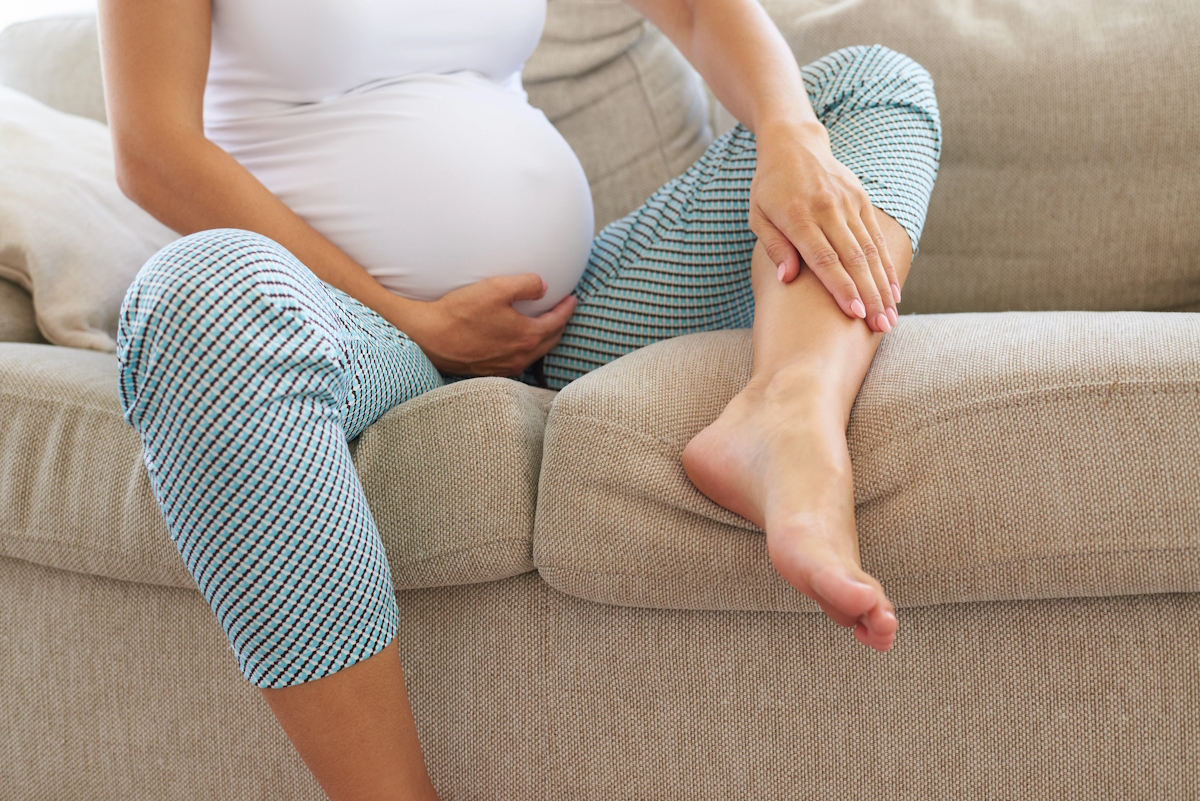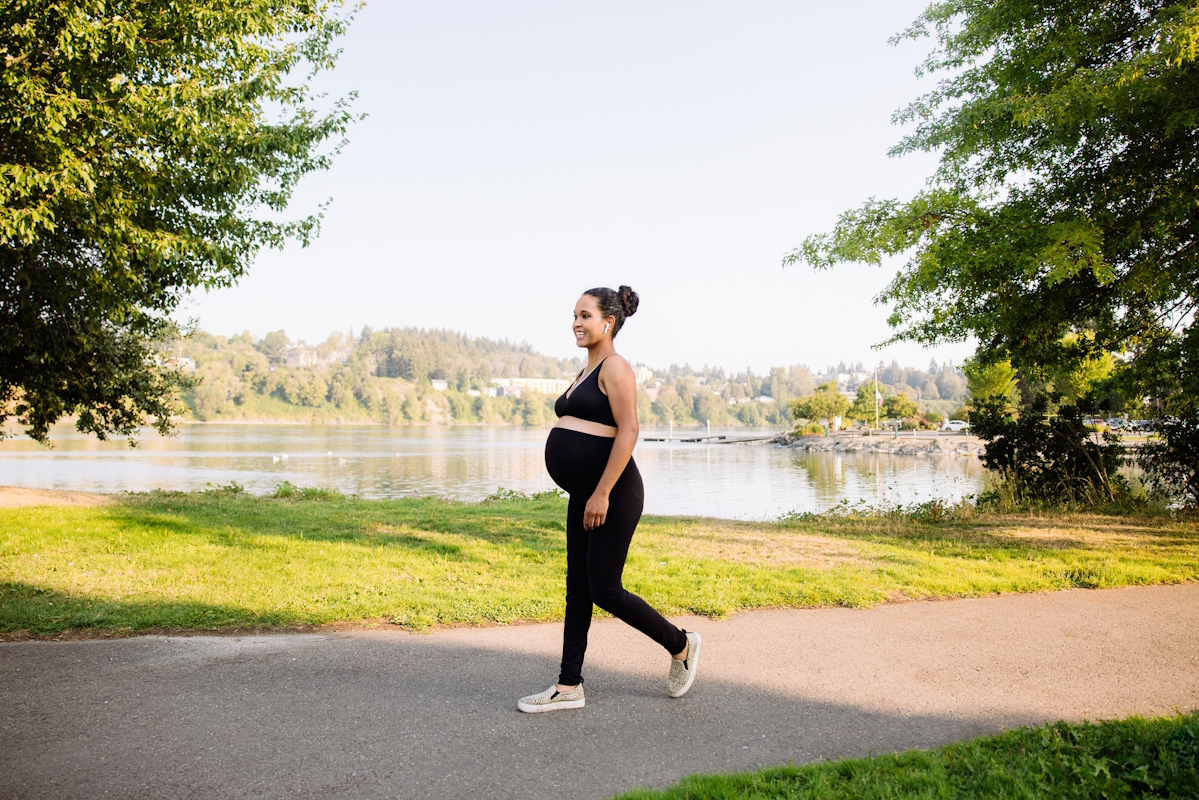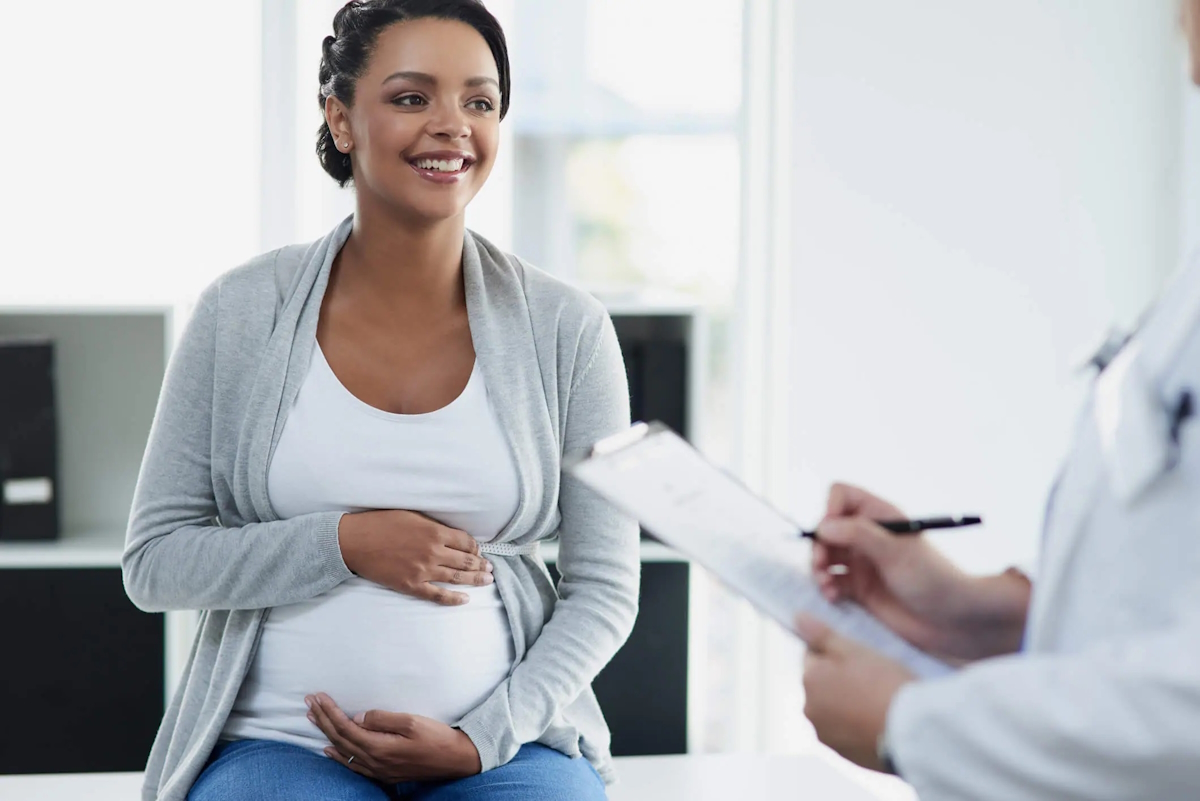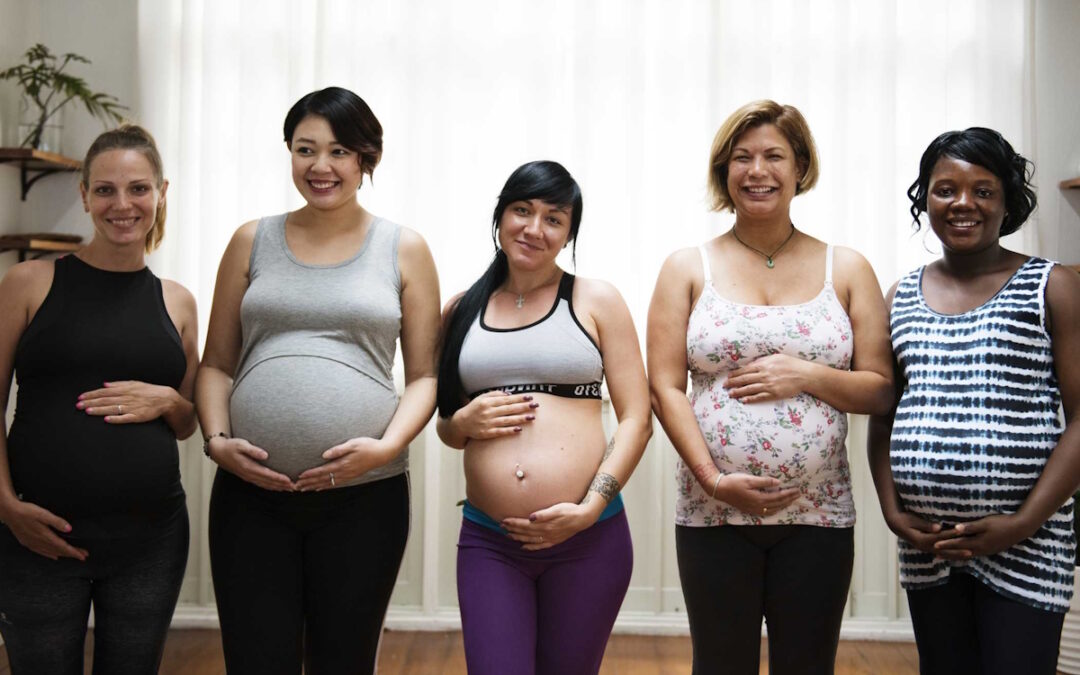Sylvia* has always wanted to be a mother. And now that she and her husband are finally pregnant for the first time, she can’t wait for the day when their baby girl is born. She even joked that she didn’t care how big her belly got or if she suffered through morning sickness every day. She’d grin and bear all that pregnancy brought her—unless, of course, she had to deal with varicose veins. Sylvia had heard varicose veins were common among pregnant women. On top of that, her sister developed them when she was pregnant years earlier. So naturally, she wondered aloud to her doctor if she was predisposed and if it were possible to prevent varicose veins in pregnancy.
Being pregnant is a wonderful time in any woman’s life. But there will always be conditions such as varicose veins that lead to a lot of uneasiness—even if they are harmless in most cases. Roughly 25 million men and women in the United States have varicose veins, and of those, about 40% are pregnant women. Women are more susceptible to varicose veins in pregnancy for a variety of reasons, and while there isn’t a way to completely prevent them, there are steps you can take before and during a pregnancy to lessen your risk.
Are you worried about developing varicose veins in pregnancy? Request an appointment with Hamilton Vascular’s specialists. Appointment
How Does Pregnancy Affect Varicose Veins?
Varicose veins impact twice as many women as men. They are twisted, ropey, discolored bulging veins on your legs that can either be nothing more than a cosmetic annoyance or a painful condition signaling a more severe condition that can worsen if left untreated.
Varicose veins appear on your legs because there’s a blood flow issue. Your veins are a network of powerful vessels, and their sole purpose is to carry blood back to the heart. That’s easier said than done when considering they are working against gravity. But healthy veins are always up to the task. The problem is when your veins aren’t healthy, rather than flowing freely throughout veins to support systems critical to cardiovascular health, vein valves can malfunction causing blood to flow backward and begin to pool in your extremities. This is why your veins begin to stretch, swell, enlarge, and even become twisted.

Do any of these symptoms look or sound familiar?
- Achy or heavy feeling in your legs
- Burning sensation
- Throbbing, muscle cramping, swelling
- Pain that worsens after sitting or standing for long periods
- Itchy skin or skin discoloration
- Numb legs
- Bruising
As previously stated, women are more likely to develop varicose veins than men. Being pregnant forces many changes within a woman’s body that only put her further at risk for bulging veins. Here’s why:
- Pressure from the uterus — As the baby grows in the uterus, it ultimately pushes against the organs and blood vessels in the abdomen and prevents blood from flowing out of the legs.
- Progesterone — Hormonal changes are directly tied to varicose veins, and a woman’s body is naturally in its most hormonal state during pregnancy. As a result, veins relax, limit blood flow, and cause veins to enlarge.
- Increase in blood — A woman’s body naturally produces more blood during pregnancy, leading to more strain being placed on the vein valves and walls.
Varicose veins can be managed. We have expert vascular doctors in South Texas ready to help today. Appointment
How to Prevent or Limit Varicose Veins in Pregnancy?
Completely preventing varicose veins in pregnancy is unavoidable, especially if there’s a family history. But you can minimize them in many cases with a few simple lifestyle changes and new habits before and during pregnancy.
Here are 7 helpful tips for women who want to minimize varicose veins in pregnancy:

1. Keep moving
It’s not easy to move around when you’re pregnant, but there’s no denying that doing so promotes healthy blood flow throughout the body while pumping blood out of your legs.
2. Elevate your feet
Elevating your feet and wiggling your toes so that they are above your heart can decrease the pressure on your veins and reduce painful symptoms. Also, women are used to constantly crossing their legs. But it’s important to avoid doing so during pregnancy, as this action prevents blood flow out of the veins and leads to excess pressure.
3. Maintain a healthy diet
Eating better and improving your diet plays a huge role in maintaining blood circulation, losing weight, and improving cardiovascular health. Options include fruits and vegetables, foods high in Vitamin C and E, and fiber-rich foods.
4. Avoid excess heat
Beyond staying cool from outside temperatures as much as possible, it’s important to avoid hot baths, hot tubs, and saunas while pregnant. These heat sources cause veins to distend and lead to pooling of blood in your lower extremities.
5. Use compression stockings
Compression socks support your legs, reduce swelling, and limit varicose veins by applying gentle pressure. The best time to wear compression socks is during pregnancy, long work shifts, exercising, or sitting or standing for too long.
6. Avoid unnecessary straining
Varicose veins tend to form in pregnant women who have been lifting heavy objects too often or straining while going to the bathroom. Vein visibility is exacerbated with any type of strain.
7. Stay comfortable
With varicose veins in pregnancy, stay comfortable by avoiding tight clothing around the waist, upper thighs, and legs. These can interrupt blood flow and increase pooling of blood and leg swelling.

Mothers Can Receive Treatment for Varicose Veins
Sadly, many women think they are stuck with their painful or unsightly varicose veins and that pregnancy will make vein disease an unfortunate condition to live with moving forward. But the reality is that your varicose veins and their symptoms can be managed. In many instances, the underlying cause is vascular related and can be treated with the appropriate level of care and the right team of vascular specialists in your corner.
More good news: Hamilton physicians are experts in diagnosing and performing leading-edge procedures to treat artery and vein diseases and symptoms that, while minor in their earliest stages, can eventually lead to chronic and serious conditions. Some patients we talk to aren’t aware they have venous disease or don’t know how their family history might impact their vein health later in life. As a result, they may delay seeking treatment. Thankfully, the experts at Hamilton Vascular recommend an individualized plan to achieve the best results.
Please contact us at 866-552-4866 or complete the appointment form to schedule a consultation. We are here to help, all while providing compassionate patient care.
AppointmentHamilton Vascular serves the South Texas area including Houston, San Antonio, Austin, Round Rock, Bastrop, Brushy Creek, Cedar Park, Converse, Georgetown, Hutto, Kyle, Leander, Marble Falls, New Braunfels, Pasadena, Pearland, Pflugerville, San Marcos, Schertz, Houston, Sugar Land, Katy, Webster, Bay City, Clear Lake, Lake Jackson, The Woodlands, Universal City, Spring, Kingwood, Stafford, Conroe, Texas City, Cypress, League City, Bellaire, and more.
Prior to starting any new treatment or questions regarding a medical condition, always seek the advice of your doctor or other qualified health provider. This information is not a substitute for professional medical advice.
*Patient stories are true. Names and/or photos may be changed to protect patient confidentiality.

